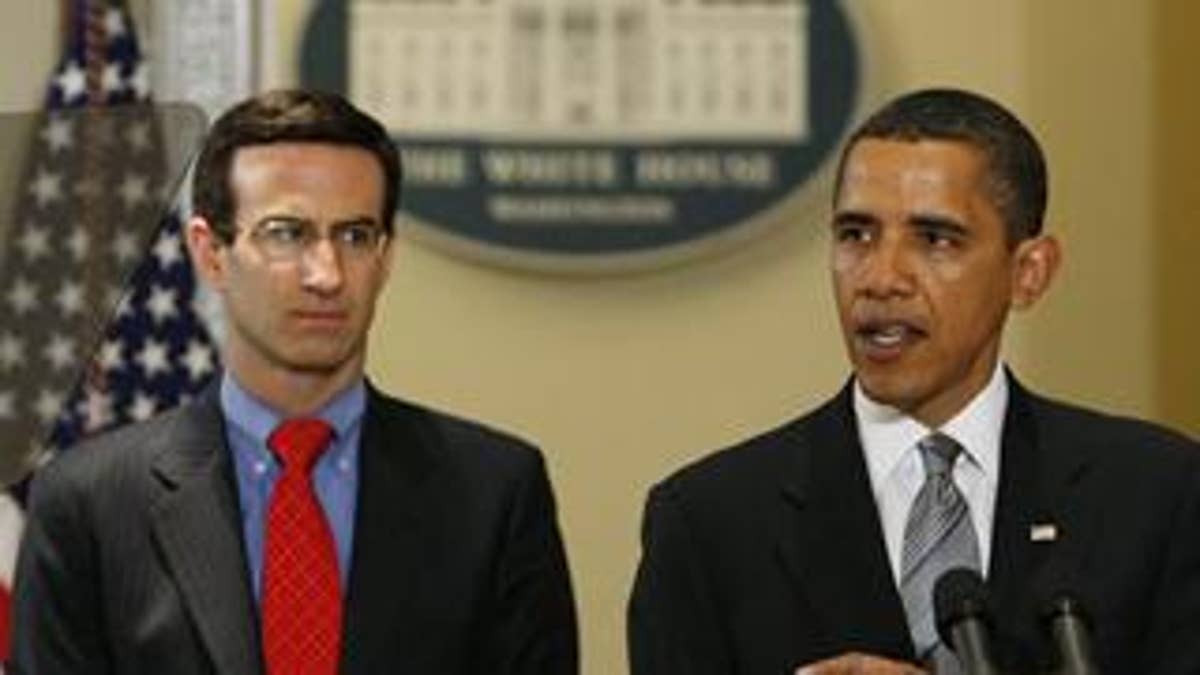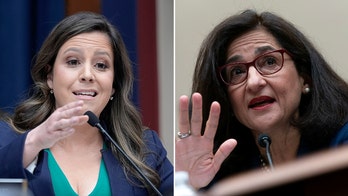
WASHINGTON -- The ranking member of the Senate Budget Committee said Thursday he's not impressed by President Obama's proposal to cut $17 billion out of the federal budget.
Appearing on FOX News, Sen. Judd Gregg, R-N.H., said it's important to place the $17 billion figure in the context of the president's $3.4 trillion budget.
"It's as if you took a teaspoon of water out of the bathtub while you left the spicket on at full speed," he said.
"Basically right now we're running up a debt that is so high as a percentage of our gross national product that we couldn't even get into the European union," he said. "I mean we're headed to third-world country status if we keep this up."
Obama's $17 billion proposed cut represents a roster of 121 budget cuts and equals about one-half of 1 percent of the $3.4 trillion budget Congress has approved for next year.
Obama said the cuts appear small only in Washington.
"All across this country, Americans are responding to difficult economic times by tightening their belts and making tough decisions about where they need to spend and where they need to save," Obama said Thursday as he unveiled the details.
"The question the American people are asking is whether Washington is prepared to act with the same sense of responsibility," he said. "I believe we can and must do exactly that."
Obama acknowledged that these steps won't be easy but he urged lawmakers to act.
"For every dollar we seek to save there will be those who have an interest in seeing it spent," he said, claiming that's how unnecessary programs survive and budgets swell.
"But at this moment -- at this difficult time for our nation -- we cannot accept business as usual," he said. "We cannot accept anything less than a government ready to meet the challenges of our time."
White House budget director Peter Orszag said the president's plan for program cuts is just a start and that a lot more needs to be done to dig the government out of its fiscal hole, especially curbing the growth of the Medicare and Medicaid health care programs for the elderly and the poor.
"But $17 billion a year is not chump change by anyone's accounting," he said.
Those savings are far exceeded by a phone-book-sized volume detailing Obama's generous increases for domestic programs that will accompany the call for cuts. And instead of devoting the savings to defray record deficits, the White House is funneling them back into other programs.
Obama explained on Thursday that the cuts are critical to improving government efficiency.
"Some programs may have made sense in the past, but are no longer needed in the present," he said. "Other programs never made any sense -- the end result of a special interest's successful lobbying campaign."
The programs in question all have supporters in Congress who want the programs funded.
Democratic Rep. John Spratt, chairman of the House Budget Committee, said in a statement, "While the Congress is unlikely to agree with all the changes proposed by the administration, the process and the resulting proposals are a step in the right directions, and a sign of fiscal discipline."
Most of the major elements of Obama's budget for next year were released in February. Additional details, including an increase in fees on airline travel to fund airport security programs, come next week.
The roster of cuts won't be easy for Congress to swallow. Lawmakers from the potent California, New York and Florida delegations are sure to fight the elimination of the State Criminal Alien Assistance Program, which gives money to states to help defray the cost of incarcerating illegal immigrants who commit crimes. President George W. Bush tried and failed to kill the $400 million program several times.
Obama is also claiming savings from eliminating a host of accounts typically earmarked by members of Congress such as a $10 million West Virginia highway project obtained by Sen. Robert Byrd, D-W.Va., and $15 million obtained by Dianne Feinstein, D-Calif., for diesel emissions reduction grants.
Obama is also proposing $145 million in savings from a clean water program administered by the Environmental Protection Agency which bankrolled 301 earmarks this year.
But Obama is not actually proposing to kill thousands of earmarks funded in the $410 billion catchall spending bill passed in March.
In fact, some of the cuts, like terminating production of C-17 cargo aircraft and phasing out direct payments to farmers with sales exceeding $500,000 annually, have already been rejected by Obama's allies in Congress. A key House panel is proposing adding $2.2 billion for 8 C-17s to Obama's pending war request, while a congressional budget plan passed last week protects the farm payments targeted by Obama.
About half the budget savings would come from an effort by Defense Secretary Robert Gates to curb defense programs, including ending production of the F-22 fighter and killing a much-maligned replacement helicopter fleet for the president that's way over budget.
Orszag briefed Democratic lawmakers on a partial roster of the cuts Wednesday. Obama also is fleshing out the details of the $1.3 trillion portion of the budget that he requested Congress pass through appropriations bills for the budget year beginning Oct. 1.
The administration is also proposing curbing subsidies for crop insurance to save $5.2 billion over 10 years and killing a $25 million program that funds the relocation of rail lines.
And just as Congress is beginning work on a new war bill to fund military operations in Iraq and Afghanistan into the fall, Obama is sending up a $130 billion request to fund them next year. That figure may not be adequate considering the increase in the tempo of operations in Afghanistan.
Obama has said repeatedly his administration will go through the budget "line by line" to eliminate waste. But the resulting savings are relatively minor compared with the government's fiscal woes, especially a deficit that's likely to exceed $1.5 trillion this year.
Republicans weren't impressed with the cuts.
"While we appreciate the newfound attention to saving taxpayer dollars from this administration, we respectfully suggested that we should do far more," House Minority Leader John Boehner, R-Ohio, said.
Many of the cuts mirror those proposed previously by Bush but largely rejected by Congresses controlled by both Republicans and Democrats.
In fact, Democrats already have pared about $10 billion from Obama's appropriations requests in passing the $3.4 trillion congressional budget plan last month.
In a preview, administration officials named a few examples Thursday which mostly represented easy-to-pluck targets, like ending the Education Department's attache in Paris, at a savings of $632,000 a year. Another example: the obsolete LORAN-C marine navigation system, which still gets $35 million a year despite being made obsolete by the satellite-based Global Positioning System.
FOX News' Mike Emanuel and Daniela Sicuranza and The Associated Press contributed to this report.




